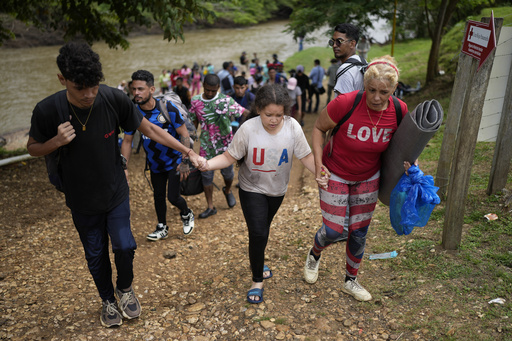Since 2022, Venezuelan migrants have been at the forefront of this mass migration, and the situation has escalated following Venezuela’s recent, disputed presidential election. According to a report published by Refugees International, the crackdown that ensued after the elections, which took place on July 28, 2024, has prompted more individuals to seek refuge elsewhere. This report was compiled from numerous interviews with migrants gathered at reception facilities in Panama and Costa Rica.
In 2023, over half a million migrants crossed the Darien, marking an unprecedented figure. Of this population, more than 65% were Venezuelan. President José Raúl Mulino, who assumed office on July 1, has vowed to mitigate migration by closing multiple entry points into the country. Moreover, he has indicated plans for a repatriation initiative, supported by the United States, which has also arranged additional flights to Colombia, Ecuador, and India. The U.S. has committed to funding deportation flights for migrants classified as inadmissible.
This repatriation strategy, however, has yet to be extended to Venezuelan migrants, due to Panama’s, along with Costa Rica’s, severance of diplomatic relationships with Venezuela after declining to acknowledge Nicolás Maduro’s claimed electoral victory. As a result, flights between these two nations are currently stalled.
As of October 7, the total number of migrants who navigated through the Darien this year reached 277,939, reflecting a 36% decline compared to the same timeframe in 2022, according to statistics from the Panamanian Ministry of Security. Interestingly, there was a notable spike in migration in September as opposed to August, with 25,111 individuals crossing, a rise of 51% month-over-month, predominantly Venezuelans making up over 80% of that number. This group also included individuals from Colombia, Ecuador, and China, among other nationalities.
The organization observed that while the Panamanian government’s migration policies and rhetoric might have temporarily deterred some migrants, the long-term effects are likely different. Many migrants encounter reduced humanitarian support upon arrival in Panama, and those who are not Venezuelan face the risk of deportation. Refugees International attributed this decrease in assistance, in part, to the suspension of Doctors Without Borders (MSF) services, which occurred back in early March under the prior administration. MSF had been active in providing aid to migrants but saw its operations cease due to a lapsed agreement with the Ministry of Health.
The report also implied that the suspension of MSF efforts might have been in retaliation for the numerous allegations made against Panamanian authorities regarding their failure to tackle the alarming rates of sexual violence reported in the Darien during the early months of 2024. According to the organization’s recent disclosures, MSF has since resumed its operations at the Lajas Blancas reception center following the approval of a three-month medical mission by Panamanian authorities. MSF reported having delivered medical assistance to over 72,700 migrants between January 2023 and February 2024.
